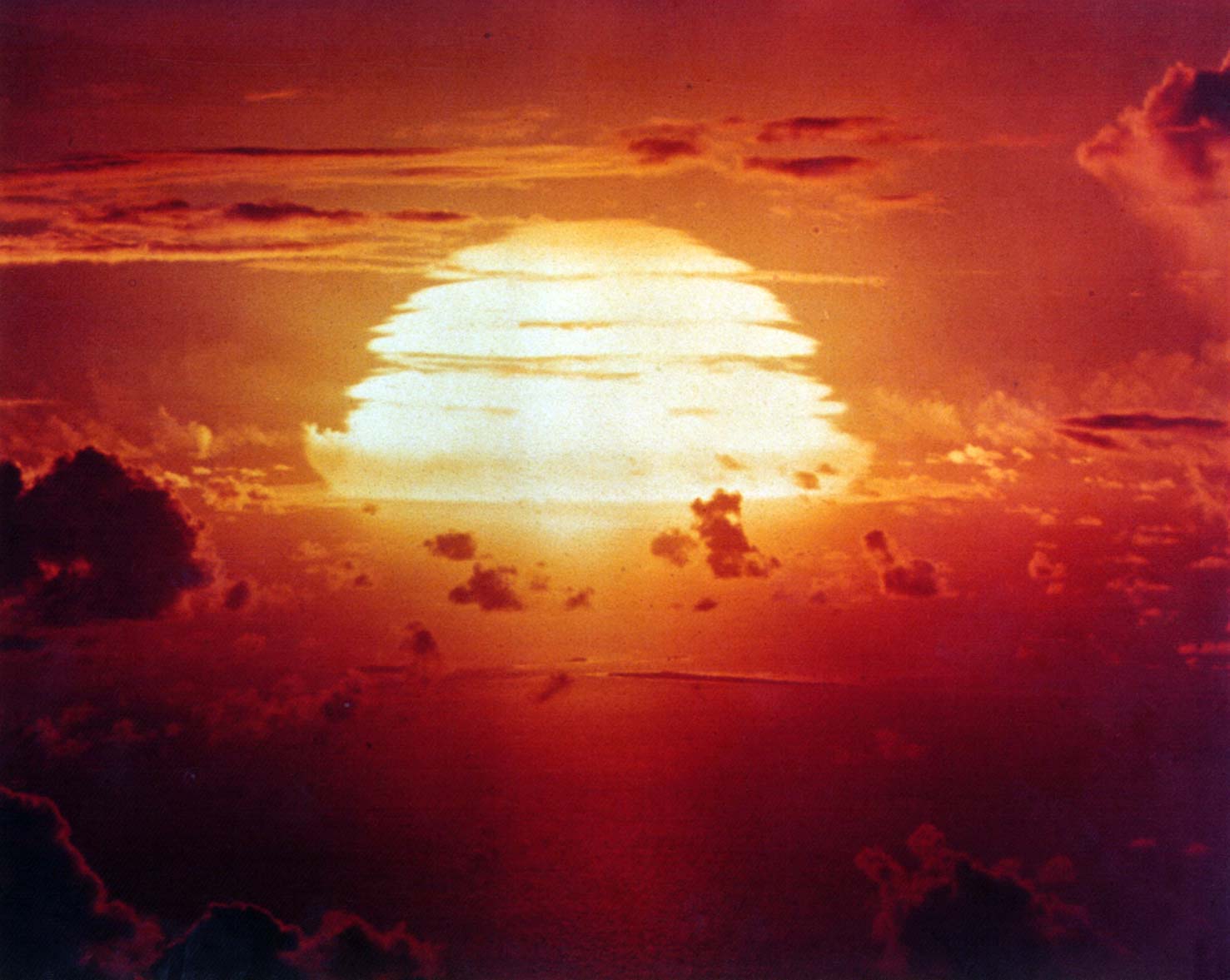Just a few years ago, the German economy was the envy of the world. With strong growth, leading exports, and a balanced budget, the European Union’s largest economy was doing incredibly well, growing faster than the neighboring United Kingdom and France. However, Germany is becoming a European laggard, experiencing a recession in 2023 and poised to grow more slowly than all OECD member states in 2024, excluding the similarly sluggish United Kingdom. Three key energy factors help explain this economic slump: disruptions to Russian natural gas imports since the invasion of Ukraine, the closing of existing nuclear power plants, and the slow transition to renewable energies.
From Crisis to Miracle to Crisis Again
The current economic slump is not the first time modern Germany has been forced to confront large-scale and systemic economic challenges. Throughout the 1990s and early 2000s, the country’s leadership faced the compound challenges of reintegrating once-estranged, post-communist East Germany into the well-developed market economy of West Germany, managing weak export figures, and curbing unemployment in the double digits—earning Germany the title of “Sick Man of Europe” among leading commentators.
However, propelled by a turning geopolitical tide and strong leadership in the wake of the new millennium, the German economy prevailed. Taking advantage of the new eastward expansion of the European Union, a growing trade relationship with China, and cheap Russian gas, the country produced enough goods for half of its economy to run off of exports. Germany also enjoyed a robust political system throughout these years. The country’s strong leadership was exemplified by Social Democrat (SPD) chancellor Gerhard Schröder, whose Agenda 2010 labor law reforms reduced unemployment rates and reportedly helped the German economy weather the 2008 financial crisis. Germany’s Jobwunder (employment miracle), and its beneficial effects on the rest of the economy, reached full potential under Christian Democrat (CDU) chancellor Angela Merkel.
However, the once-great German economy is again in a recession. After being hit by COVID-19, Germany started to recover but was quickly beaten down by the geopolitical ramifications of Russia’s war in Ukraine. Russia, once a provider of cheap natural gas, became the target of almost unanimous Western sanctions, cutting Germany off from much of its energy supply. Although German energy prices have recently fallen, Germany is still recovering economically from the period of higher prices caused by energy shortages, which impacted vast subsectors of the economy, from the world’s largest industrial steel mills to the smallest local bakeries. Apart from a complacent reliance on Russian gas throughout its period of fast growth, Germany’s energy policy faces a detrimental resistance to nuclear energy, a sluggish transition to green energy, and an incredibly slow bureaucracy, all contributing to the nation’s energy crisis.
No More Russian Gas
Ever since its establishment in 1949, the Federal Republic of Germany (FRG) has had a turbulent relationship with the Soviet Union (now Russia). Despite belonging to rival geopolitical alliances—NATO and the Warsaw Pact, respectively—West Germany under chancellor Konrad Adenauer and Moscow established diplomatic relations in 1955 and signed a bilateral trade agreement in 1958. Within the ensuing trade boom between the “officially” rival nations, one of the largest aspects of the trade deal was Germany exchanging its large-diameter pipes for gas starting in the 1960s with the Druzhba pipeline ("Friendship Pipeline''). Although this economic collaboration was disrupted when the Kennedy administration pushed through an embargo on German pipe exports to the Soviet Union through NATO, Willy Brandt’s Ostpolitik throughout the 1970s brought the FRG closer to its Eastern neighbors. By 1973, Soviet gas began flowing to West Germany through a new pipeline, beginning an era of cheap Soviet gas imports to Germany.
At the fall of the Berlin Wall in 1989, Soviet gas accounted for a third of West German gas, and imports increased further as the Soviet Union transitioned into Russia. Throughout Germany’s period of remarkable growth, new pipelines were opened (most notably, the Nord Stream 1, which opened in 2012), and dependence on gas imports for energy grew. As Germany’s energy market liberalized, cheap Russian gas became a favored energy source for industry. Additionally, German leadership saw natural gas as a “transition fuel” between dirty coal and renewable, carbon-neutral energy sources, as well as a vessel for geopolitical ties between the European Union and Russia.
The gas-fueled prosperity of the Jobwunder, however, made Germany complacent with its energy policy, and it ignored calls by the European Commission to diversify its gas supply away from Russia. Though Germany’s fragile balancing act worked well for the better part of two decades, its strategy fell apart when Russia invaded Ukraine and the West began to heavily sanction Russian gas. Energy prices quickly rose 35 percent compared to pre-war levels, leading to inflation and culminating in the serious economic woes Germany experiences today.
From Nuclear to Gas
Apart from Germany’s general reliance on Russian gas until the invasion of Ukraine, the country had notably departed from nuclear energy as part of its greater Energiewende, or energy transition. This shift, spearheaded by the Greens (Bündnis 90/Die Grünen) and continuing today, has not been without significant consequences, both within Germany’s energy market and its broader economy.
Germany's decision to phase out nuclear power was initially prompted by public concerns following nuclear accidents in the United States in 1979 (Three Mile Island power plant) and Ukraine in 1986 (Chernobyl); this phase-out was cemented by the Fukushima Daiichi nuclear disaster in Japan in 2011, which finally quieted lingering calls for re-nuclearization from the center-right Christian Democrats (CDU). CDU chancellor Angela Merkel subsequently proclaimed the end of German nuclear power. Since then, the country has worked to decommission its nuclear power plants and transition to a greener, more renewable energy supply. This policy had substantial implications for energy prices even before the post-invasion shortage.
One of the main justifications for Germany’s departure from nuclear power is the planned transition to renewable energy sources—a key reason why the Green party has supported the decommissioning of nuclear power plants. While these sources are indeed more sustainable than nuclear energy, which is not renewable, German renewable energy infrastructure is nowhere near developed enough to provide stable supplies to its massive industrial base. Germany did indeed plan to invest heavily in grid infrastructure and backup capacity to ensure a stable renewable energy supply; however, the country’s electricity supply is still just over 52 percent renewable—an impressive share, but not enough to match the needs of its energy-hungry industries.
To fill the supply gap left by the shrinking share of nuclear energy, Germany has trusted formerly cheap and reliable natural gas. Apart from the diminishing share of nuclear in the country’s energy mix, the demand for gas was already heightened due to the earlier decommissioning of coal plants, further driving up reliance on gas. Germany’s decision to decommission its nuclear plants has therefore aggravated an already serious energy shortage, contributing to the current slump in growth.
The Slow Transition To Renewables
Given restricted and uncertain natural gas supplies and a serious energy shortage exacerbated by phasing out nuclear power, it appears most advantageous for Germany to leverage all policy tools to transition to renewables as soon as possible. However, the country's transition to renewables has been notably lethargic, plagued by a bureaucratic quagmire that threatens its energy security, environmental commitments, and economy.
Germany’s antiquated, paper-based bureaucracy has been one of the main culprits in this lethargic transition. Permitting and approval processes for renewable energy projects can be excruciatingly slow and convoluted, which not only discourages investment, but also hampers the country's ability to harness its renewable potential effectively.
The situation is surprising, given Germany's early leadership in championing renewable energy. From the early 2000s to the early 2010s, the country was the poster child for green energy, with ambitious targets and groundbreaking incentives that encouraged widespread adoption of solar and wind power. Meanwhile, the rest of the world worked hard to catch up, most notably the United States, which subsequently passed the landmark Inflation Reduction Act in 2022. This Act included tax credits related to clean home energy and vehicles. However, Germany is now losing ground, as the combination of high energy costs and the slow transition to renewable energy have forced industrial suppliers to use alternative methods to stabilize their energy supply; for instance, the biochemical firm Evonik kept coal furnaces running for an extra few months upon request from the German government.
Green infrastructure that has already been planned is also behind schedule due to extensive bureaucratic delays and NIMBYism, the tendency of citizens to approve of renewable energy projects but “not in my backyard.” For example, a high-voltage power line designed to transport wind power from the windy North to the power-hungry South is currently facing delays due to local resistance in a small Bavarian town. Though there is progress in the deployment of renewable energy production facilities and infrastructure, it is nowhere near fast enough to meet the energy needs of Europe’s industrial powerhouse, imposing restrictions on economic growth.
What Now?
To address its current economic issues and pave the way for a fast and efficient energy transition, Germany is considering various alternative options for its energy policy. Transitorily, Germany is aiming to reduce its dependence on Russian natural gas by turning to alternative suppliers, including Norway, for the time being. However, this solution is only temporary. Since Germany is committed to becoming carbon neutral by 2050, long-term investments in gas infrastructure (such as permanent LNG terminals) may not be worth the large initial investments they require.
For the time being, Germany is still set on phasing out its nuclear power plants, even though the country could benefit from extending the operational life of existing nuclear power plants. Investment in advanced nuclear technologies could ensure a stable energy supply during the crucial transition from fossil fuels to renewables. Despite closing existing nuclear power plants with fission reactors, Germany is a leader in developing fusion reactors, with the government planning to spend more than one billion euros on this cutting-edge technology. Fusion reactors are reportedly safer than fission reactors because they do not produce radioactive waste and are not based on chain reactions, decreasing the risk of nuclear accidents. Significant production of clean fusion energy would also align with Germany’s net-zero targets and broader climate commitments, with the UN Intergovernmental Panel on Climate Change (IPCC) including nuclear energy in its recommended pathways to limit global warming to under two degrees Celsius.
Finally, as its long-term strategy, Germany can focus on providing stronger financial incentives and subsidies for renewable energy projects, stimulating the innovation and growth of the clean energy industry to reduce carbon emissions and decrease reliance on natural gas. Apart from being able to provide ample energy to its economy, increased subsidies in the green energy sector will increase economic productivity at large and allow German companies to take advantage of benefits like those in the US Inflation Reduction Act. To ensure that these environmental and economic benefits can be fully realized, Germany must streamline its bureaucratic procedures.
By diversifying its gas supplies, reconsidering its stance on nuclear energy, revamping its green energy subsidy system, and streamlining its antiquated bureaucracy, Germany can set itself on a path of greater energy security and regain the strong and resilient economy that made it the envy of the world. Only a forward-thinking approach to energy policy can heal the “Sick Man of Europe.”





